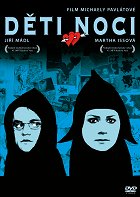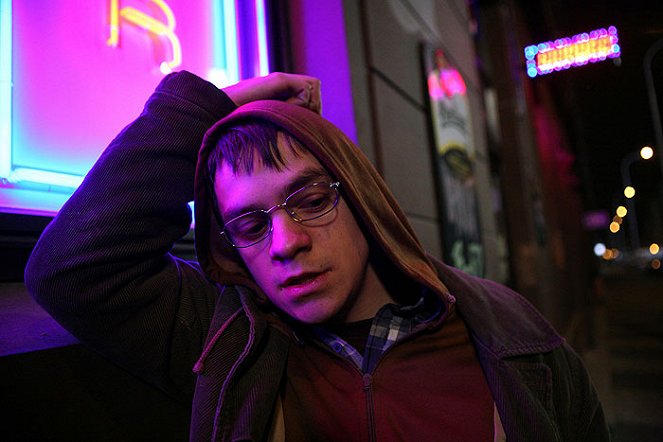Réalisation:
Michaela PavlátováPhotographie:
Martin ŠtrbaActeurs·trices:
Martha Issová, Jiří Mádl, Jan Dolanský, David Novotný, Kristýna Badinková Nováková, Lenka Termerová, Jana Hubinská, Václav Helšus, Igor Chmela (plus)Résumés(1)
Ofka (25) works the nightshift behind the counter at a 24-hour shop. She doesn’t reflect much upon herself, living with the attitude that she should hide inside herself the uncertainty and despair she feels from failed relationships. All she has left is lethargy and a peculiar kinship she shares with others who, like her, are awake when the rest of us sleep. Mira, the only person who she truly loved, has started dating her good friend. Ofka is still in love with him and, because of this, treats her old friend Ubr, who is in love with her, mercilessly. In a flash, as Ofka finds herself the victim of a bizarre robbery, the world falls apart before her eyes, and is suddenly full of confusion and pain. Still, only waking from her lethargy can help Ofka understand the truth about herself and eventually give her back the courage to finally pursue her dreams. (texte officiel du distributeur)
(plus)Vidéo (4)
Critiques (3)
Un film très triste sur des gens malheureux de toutes les catégories d’âge. Avec The Karamazov Brothers, je considère Děti noci comme le meilleur film tchèque de l’année 2008. La réalisatrice a sélectionné une riche palette d’acteurs : Martha Issová et « sa famille », Jiří Mádl, la troupe de théâtre Dejvické divadlo, Jan Dolanský et Kristýna Nováková. Tout ce petit monde représente de simples citoyens tchèques que l’on rencontre surtout dans la banlieue de Prague, certains essayant de se battre pour de meilleurs lendemains, les autres se résignant et se traînant tant bien que mal à travers leur vie. L’intrigue n’est ni flamboyante ni palpitante, mais moi, je ne m’attendais à rien de tel et le regard posé sur la vie de ces personnages m'est allé droit au cœur. Je suis persuadé que Děti noci aura du mal à percer du fait que c’est un film très « différent ». Quant à Issová et Mádl, ils méritent la reconnaissance, car tous deux jouent merveilleusement bien.
()
We jump into the life of a bored young girl who doesn't know what she wants. Because she doesn't know, and is too lazy to do anything with her life, and too annoyed to even think about it, everything goes to shit. And nobody figured out that all she wanted was a good scratching behind the ear, they all wanted to scratch her someplace else. The main characters were flat and boring, like the whole movie in fact, so it was a pretty lost cause. It's clear what the bard wanted to say, so why couldn't the Czech bard say it differently? Why didn't she use another metaphor?
()
Michaela Pavlátová will probably always remain the director of Faithless Games. Where there is nothing, there is also nothing for death to take. Mádl just repeats his regular awkwardness and Martha repeats her aimless would-be rebelliousness from The Good Neighborhood. As a complement to the ancient tragedy of the big city, Novotný, Dolanský, Martha's mother, Babčáková, and other fine contemporary artists roam herein.
()



Annonces